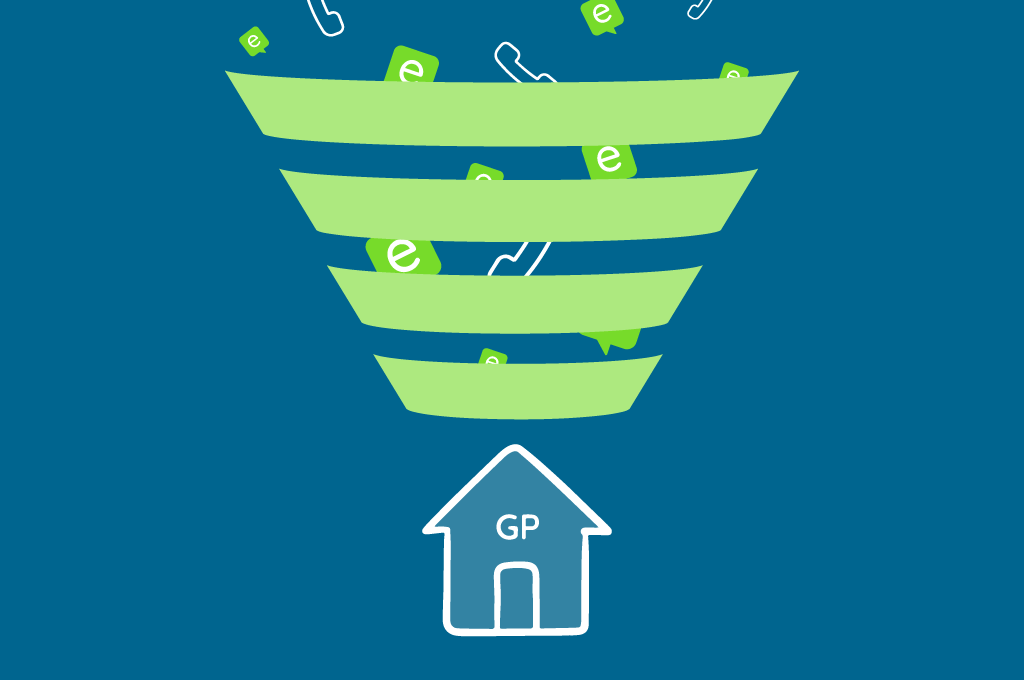Online triage doesn’t create demand, it enables safer access

How should GPs cope with bottlenecks and rising demand for services?
The pandemic has put this important question into the spotlight. At a time of great strain, how do we ensure that those patients who need to see a GP are given every opportunity to do so?
It is true that access has become an issue of increasing significance. The restrictions placed on surgeries as a result of COVID have led to a higher number of patients using our service to contact their GP directly. Some practices, such as Ivy Grove, are struggling to cope.
The traditional way of dealing with access bottlenecks was to let patients buy a ticket in the morning phone lottery. Unfortunately, the greater the demand for GP services the longer the odds of getting through to book an appointment. As this excellent article by Matt Black eloquently argues, for decades patients have been prioritised according to luck rather than the judgement of a qualified medical professional.
Many digital services do not address this problem. They simply add an extra channel through which over-worked reception staff must deal with irate patients.
eConsult was created not as an extra channel but as a digital front door to enable safer access to services. The more efficiently practices triage demand, the more patients they can see, and the more quickly sick patients can be treated – whether face to face or online.
eConsult’s carefully curated questions, with inbuilt flagging, help staff to quickly and accurately assess the patient’s condition and the next steps for treating it. We are the first two minutes of your GP appointment, not just a tool for booking it.
Unmasking demand, not creating it
Change is uncomfortable, and there is a small minority of staff and doctors who believe that digital services like eConsult are creating demand that wouldn’t otherwise exist. In fact, the opposite is true: we are unmasking demand that would otherwise remain hidden. And triaging this demand is surely better than limiting it.
An example I often cite is the 23-year old man who used eConsult because he didn’t have time or patience to wait in a 15-person long queue. His head was banging and something felt a bit weird. He used online triage and was immediately sent to A&E where he was treated for a subarachnoid haemorrhage. Without digital triage, he may well have died.
Prioritising patients, protecting GPs
GPs are motivated by a desire to help as many patients as possible. They hate seeing an electronic queue of disgruntled patients. Our priority is to help overworked and understaffed practices prioritise the patients who need to be seen urgently face to face, and as a result, ensure safety and standards are maintained. If this means that non-priority patients complain about us on Twitter or in the media, that is something we will have to live with until the NHS is given sufficient extra resources to cope with rising demand.
Managing the problem
Despite the challenges, the future of primary care is online triage. After watching hundreds of surgeries across the country successfully implement eConsult, we believe there are two essential ingredients for a successful rollout.
First, turn off telephone triage. All triage should happen online, except for the minority of patients who cannot access digital services. This frees up practice staff time and ensures requests are dealt with quickly and effectively.
Second, take a couple of days with your team to plan and prepare for the rollout. This ensures that all staff are aware of how to use the tool, understand its role in the practice and how they should interact with it. Our first-class Transformation Team can be deployed to support any practice at the start of their journey.
By working together we can better use technology to enable us all to identify patients by clinical need and deliver faster and safer care.
Feeling the strain? Book in a free session with our transformation team
We would also love to see you join our conversation on our social channels:
Written by:
Dr Mark Harmon, BSC (Hons) | Strategy and Brand Director at eConsult Health.
Mark qualified from King’s College School of Medicine in 2014 and has since worked in a wide range of Specialties across Primary and Secondary care. Prior to studying medicine, Mark held some senior strategic and brand executive positions in some of the world’s leading blue-chip companies, such as Nike, Speedo, The Arcadia Group and Marks and Spencer plc. Mark joined eConsult Health in 2016.


